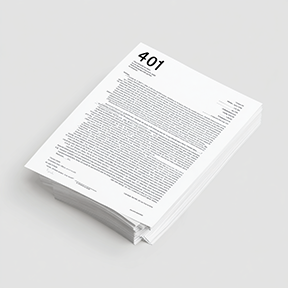
Graduation marks a significant milestone but also signals the start of new financial responsibilities. Whether you're a new graduate or a supportive family member, understanding the basics of financial planning can set the stage for long-term success. This guide explores three essential areas: 529 plans, Roth IRAs, and the importance of starting good financial habits.
529 Plans: Education Savings with Flexibility
A 529 plan is a tax-advantaged savings account designed to help families save on education expenses. Originally created to cover college costs, these plans now also allow withdrawals for K–12 education, apprenticeship programs, and even up to $10,000 in student loan repayment. The money invested grows tax-deferred, and withdrawals for qualified education expenses are tax-free at both the federal and state levels.
There are two main types of 529 plans:
• College Savings Plans: Funds are invested in mutual funds or similar options, and the account value grows based on investment performance. Withdrawals can be used for a wide range of education expenses.
• Prepaid Tuition Plans: These allow you to lock in current tuition rates at participating colleges, protecting against future tuition hikes. However, they may have more limited use and don't cover room and board.
Recent legislation now allows up to $35,000 of unused 529 funds to be rolled into a Roth IRA for the beneficiary, provided the account has been open for at least 15 years. This adds flexibility and ensures savings don't go to waste if educational needs change.
Roth IRAs: A Smart Start for Retirement
For new graduates entering the workforce, starting to save for retirement early can make a significant difference due to the power of compound interest. A Roth IRA is an individual retirement account funded with after-tax dollars. The key benefits include:
• Tax-Free Growth: Investments grow tax-free, and qualified withdrawals in retirement are also tax-free.
• Flexibility: Contributions (but not earnings) can be withdrawn without taxes or penalties, making a Roth IRA a valuable backup for emergencies.
• No Required Minimum Distributions: Unlike traditional IRAs, Roth IRAs do not require withdrawals during the original owner's lifetime, allowing more time for investments to grow.
To contribute to a Roth IRA, the account holder must have earned income equal to or greater than the contribution amount. For 2022, the annual contribution limit was $6,000 for individuals under 50. Contributions can be made by the graduate or as a gift from family, provided the graduate has sufficient earned income.
Building Good Financial Habits
Establishing sound financial habits early is crucial for long-term stability. Here are key steps for new grads and their families:
• Create a Budget: Use the 50/30/20 rule as a guideline- allocate 50% of income to needs (like rent, groceries, and utilities), 30% to wants (such as dining out, entertainment, and travel), and 20% to savings and debt repayment (like an emergency fund or paying off student loans).
• Start an Emergency Fund: Aim to save three to six months' worth of living expenses to cover unexpected costs. Graduation gifts or first paychecks can be a great starting point.
• Manage Debt: Stay on top of student loans by understanding repayment options and making timely payments.
• Save for Retirement: Take advantage of employer-sponsored retirement plans, which are savings plans offered by employers that allow employees to save for their retirement, especially if there is a company match. Consider opening an IRA if one isn't available.
• Monitor Credit: Regularly check your credit score, pay bills on time, and keep credit utilization low to build a strong credit history5.
• Seek Guidance: Don't hesitate to consult with family, mentors, or financial advisors for advice and support.
Graduation is a time of celebration and transition. By leveraging tools like 529 plans and Roth IRAs, and establishing strong financial habits, new graduates and their families can lay a solid foundation for a secure and prosperous future.
Disclosure
The information provided in this article, "Graduation Season: Financial Planning for New Grads and Their Families," is for general educational and informational purposes only and does not constitute investment, tax, or legal advice. While care has been taken to ensure the accuracy of the content, readers should consult with a qualified financial advisor or tax professional regarding their circumstances before making any financial decisions. The article references third-party sources for factual information and does not endorse any specific financial products or services. The author and publisher are not affiliated with, nor compensated by, any of the entities mentioned. Past performance is not indicative of future results, and all investments carry risk, including the potential loss of principal.
This material is not intended to serve as personalized tax, legal and/or investment advice since the availability and effectiveness of any strategy is dependent upon your individual facts and circumstances. Duncan Williams Asset Management is not a legal or accounting firm. Please consult with your legal or tax professional regarding your specific tax situation when determining if any of the mentioned strategies are right for you.
Sources
- Investopedia: 529 Plan: What It Is, How It Works, Pros and Cons
https://www.investopedia.com/terms/1/529plan.asp - Los Angeles Times: Tips for handling your finances in a time of economic uncertainty
https://www.latimes.com/business/story/2025-05-03/tips-for-handling-your-finances-in-a-time-of-economic-uncertainty - SUCCESS: Net Worth: How to Manage and Optimize Your Financial Future
https://www.success.com/net-worth-how-to-manage-and-optimize-your-financial-future/ - Fidelity Investments: Roth IRA | Powerful Way to Save for Retirement
https://www.fidelity.com/retirement-ira/roth-ira - SEC: Compliance and Disclosure Interpretations
https://www.sec.gov/rules-regulations/staff-guidance/compliance-disclosure-interpretations












